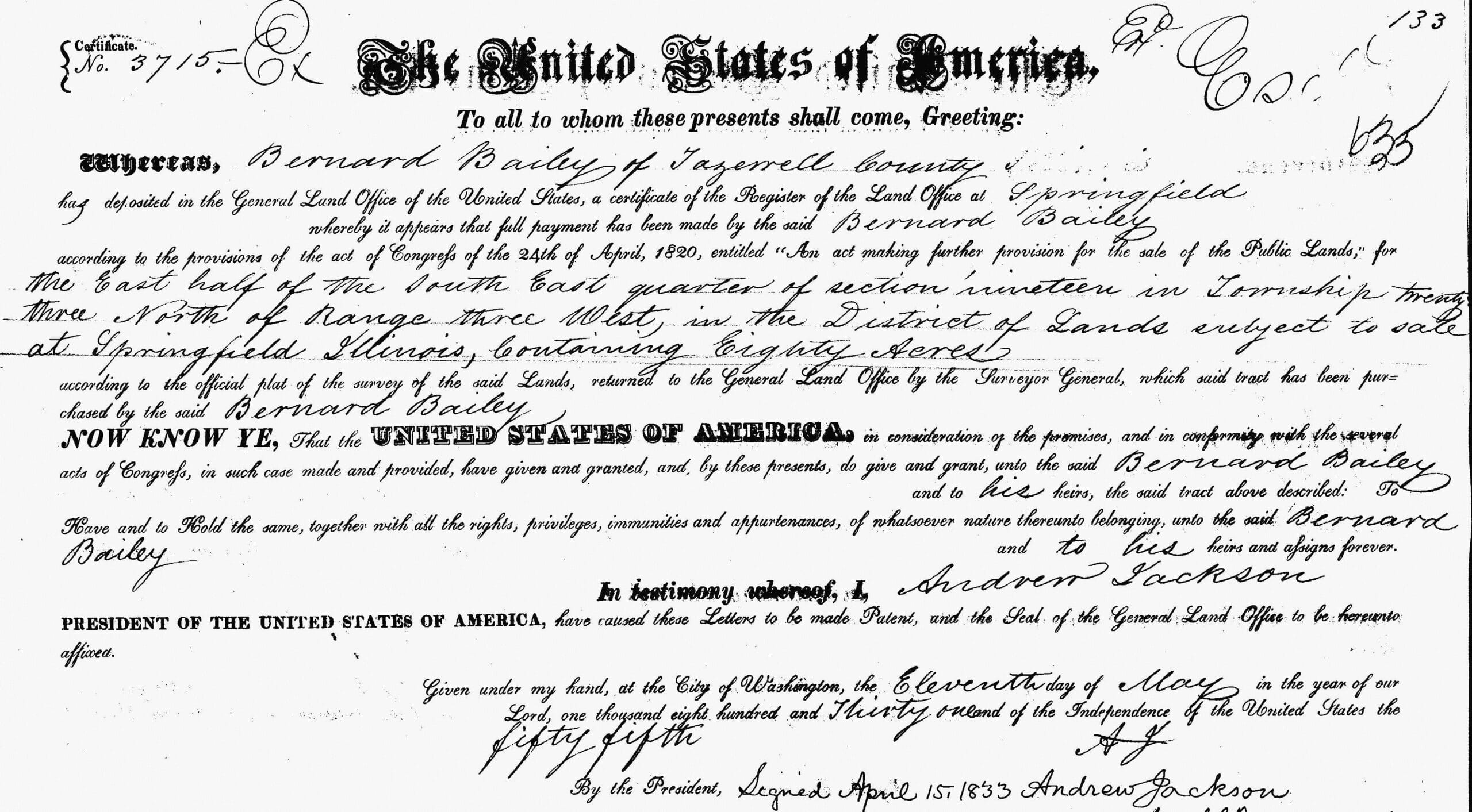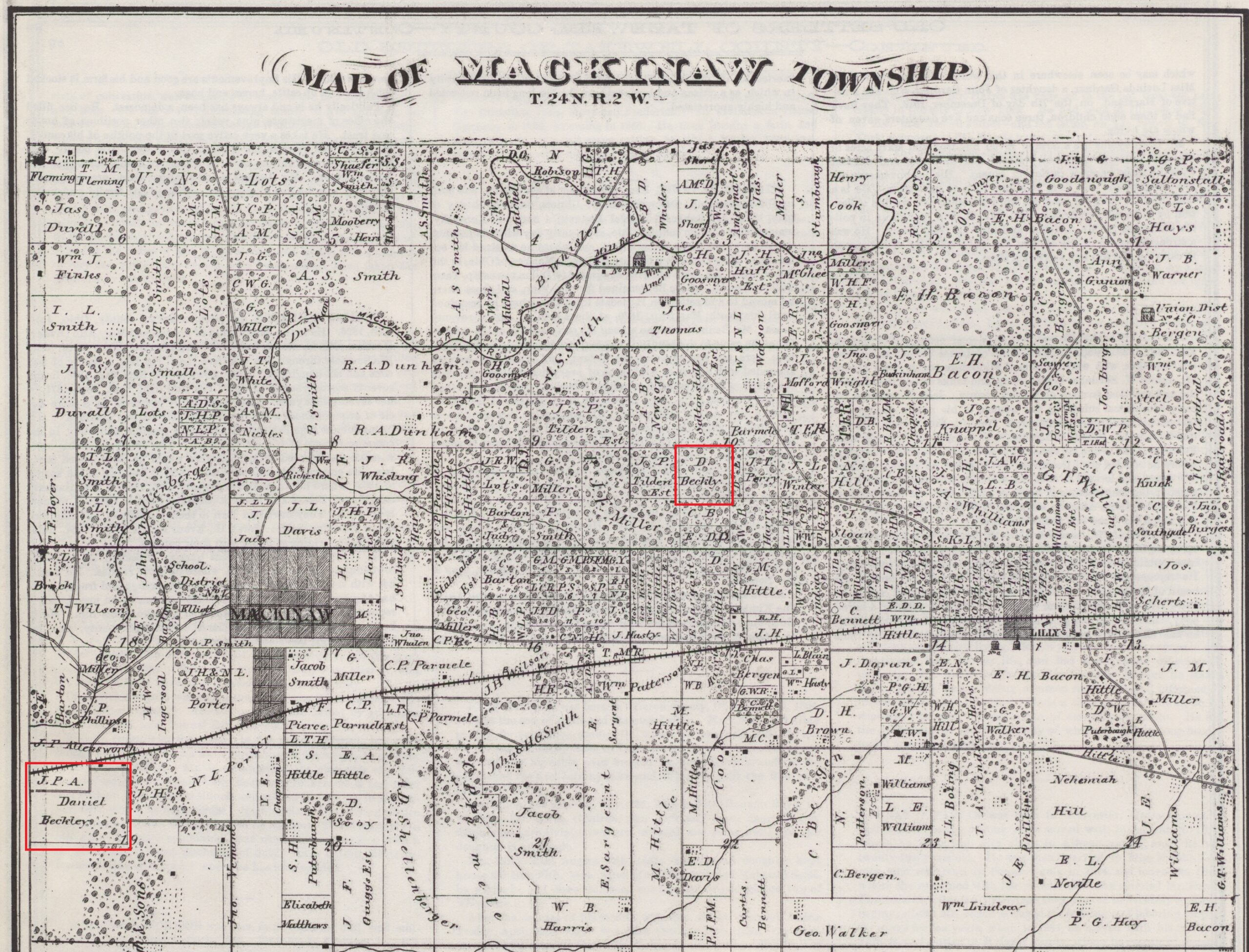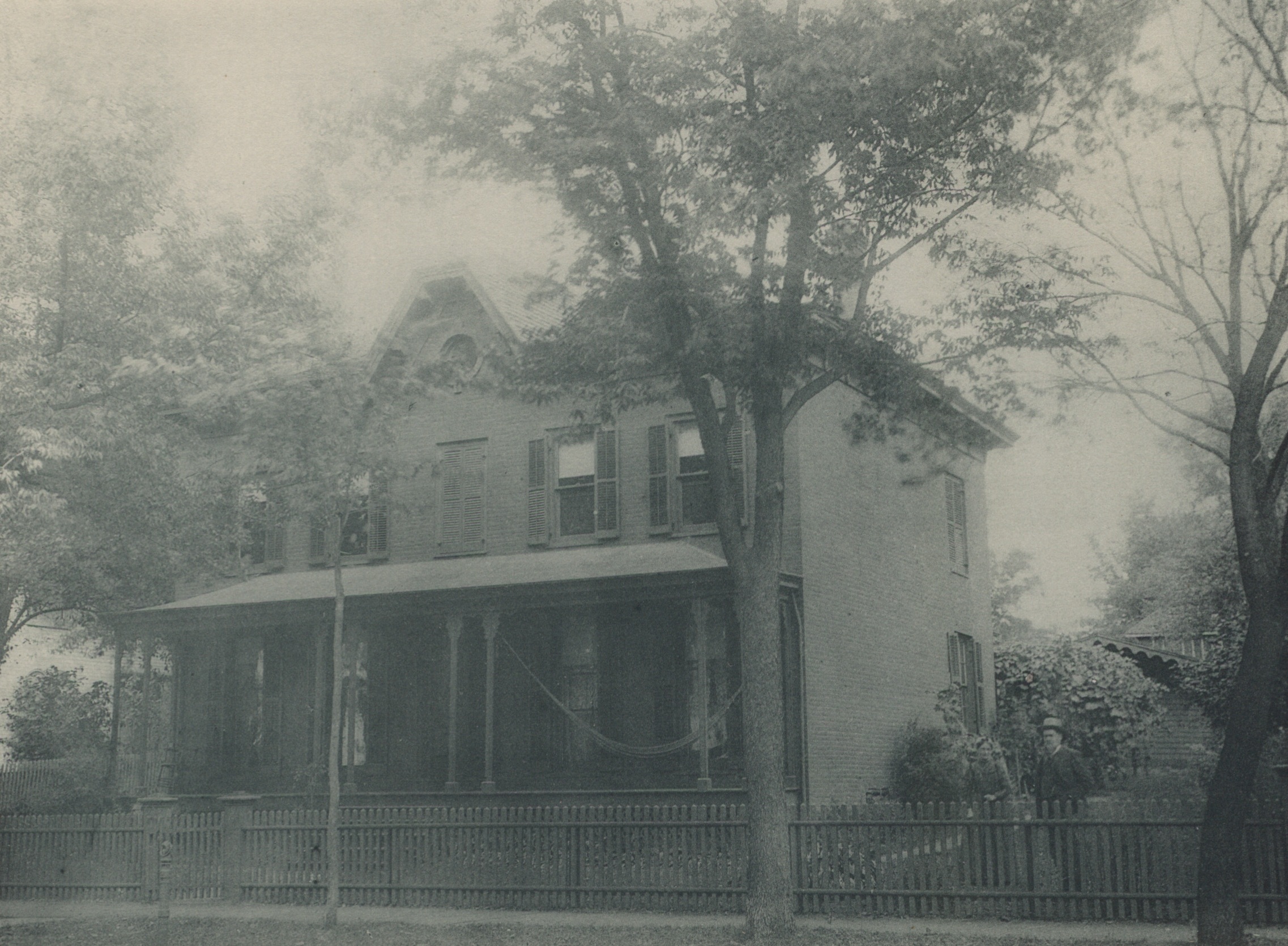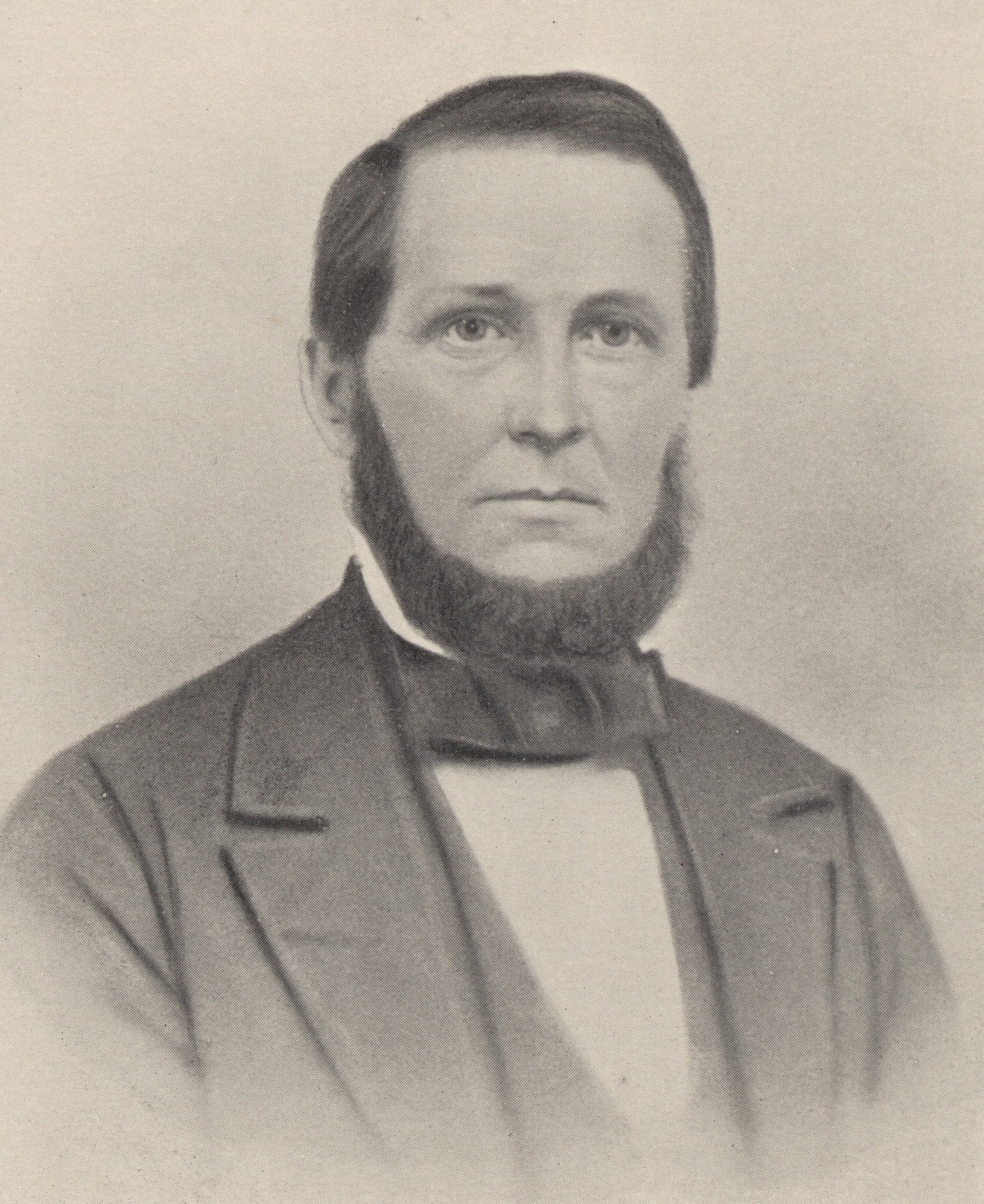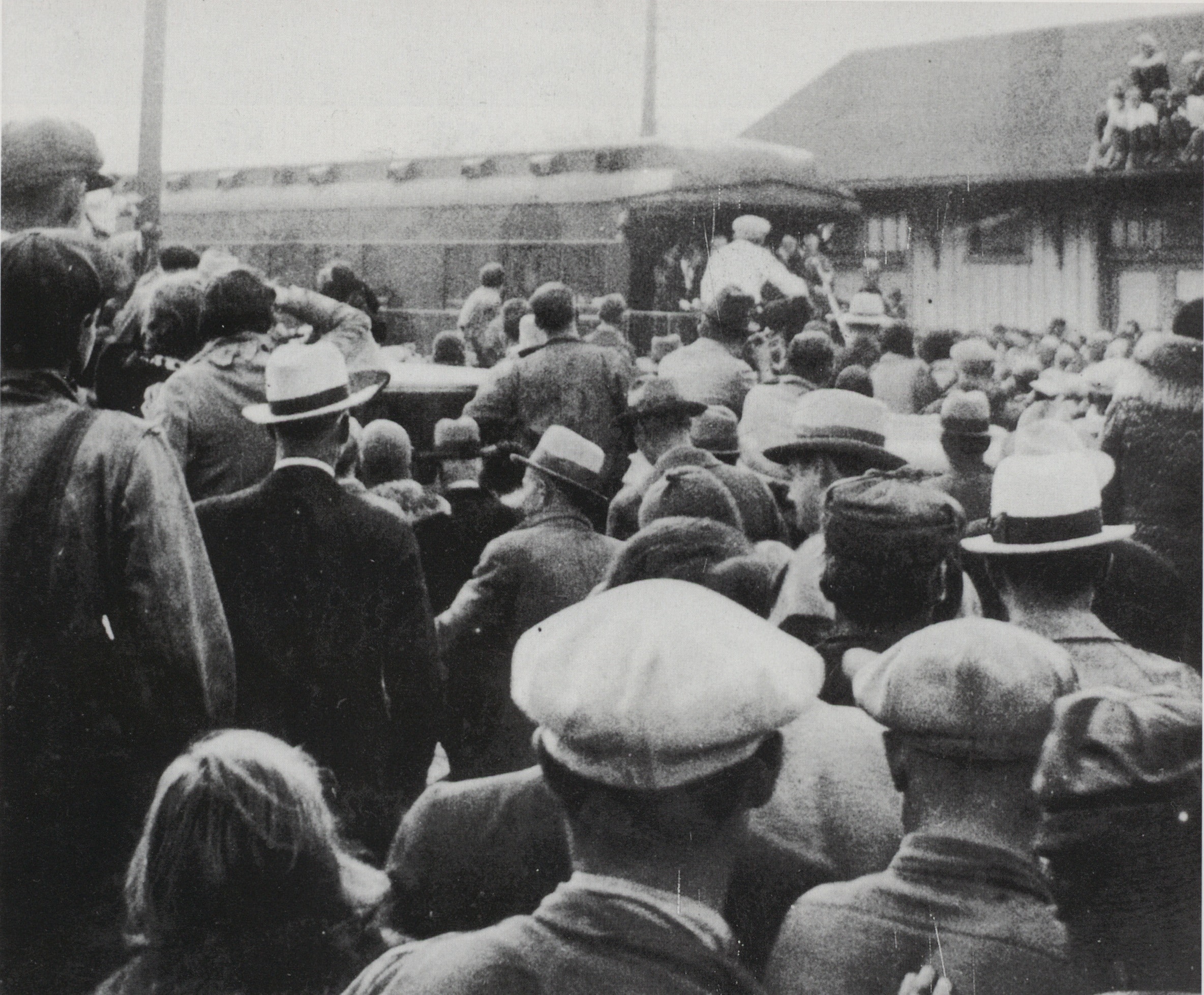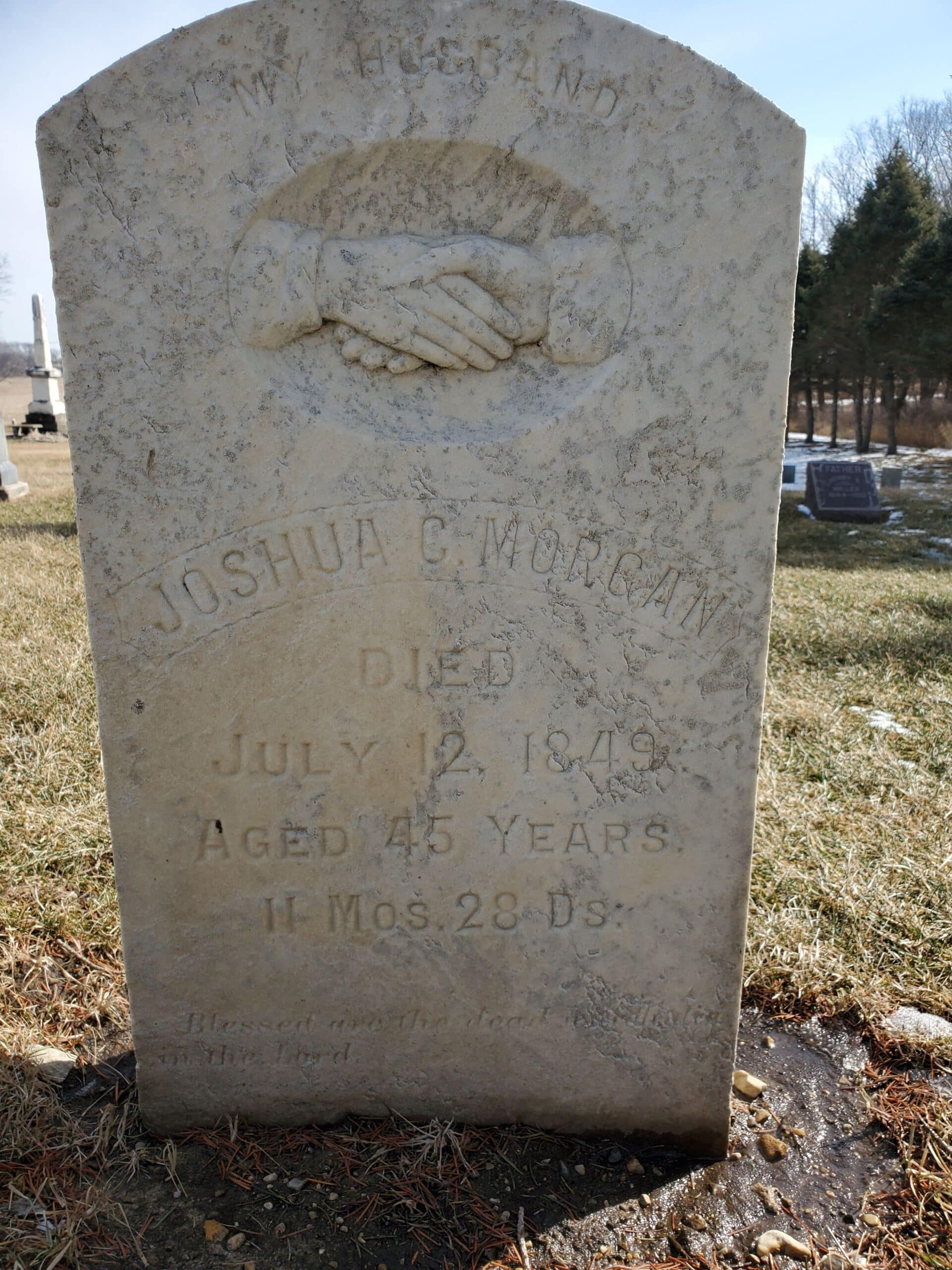In our previous installment in our Pekin Bicentennial series we reviewed the story of how Pekin became an incorporated city in 1849. When the residents of Pekin voted to adopt a city charter on 20 Aug. 1849, Pekin opted for a mayor/alderman form of government.
The earliest published history of Pekin is found in the Sellers & Bates 1870 Pekin City Directory. On page 28 of that volume, we read, “The election for city officers occurred on the 24th of September, 1849, and resulted in the election of the following named officers: Mayor – Bernard Bailey. First Ward – John Atkinson. Second Ward – David P. Kenyon. Third Ward – Wm. S. Maus. Fourth Ward – Jacob Riblet.”
The Bailey name is an old one in Pekin – part of Pekin is known as Bailey Addition, and Lake Arlann (Meyers Lake) formerly was called Bailey’s Lake. However, Bernard Bailey does not appear to have been a member of that Bailey family. The 1880 “History of Peoria County” says he was born in Maryland on 26 March 1812, the son of Vincent and Susanna (Bernard) Bailey. He first came to Tazewell County, Illinois, around 1830, where he worked as a school teacher and worked at his father’s ox mill. Settling in Pekin, he went into the grocery business and did some wagon making, saving enough money to become a lawyer.

Bailey then left Pekin, moving to Mercer County, Illinois, and then south to Louisiana, the native state of his wife Arabella Gilmore. In East Baton Rouge Parish, he tried his hand at sugar and cotton planting, until in 1848 he returned to Pekin, being elected mayor the following year.
Originally Pekin’s mayor and aldermen were elected to serve one-year terms, with elections taking place in the spring. Because the first mayor and city council were elected in the autumn, however, they could only serve about seven months before the next election. The 1870 City Directory says the second city election was on 15 April 1850, and Mayor Bailey and three of the four aldermen were reelected (Atkinson losing his reelection bid to Peter Weyhrich, who later would serve a term as Pekin’s mayor in 1858-1859).
Before Pekin could vote to incorporate as a city, a hasty enumeration of the town’s inhabitants had to be conducted to verify that Pekin had at least 1,500 residents. However, immigration and prosperity was fueling a population boom during Mayor Bailey’s two terms. The 1974 Pekin Sesquicentennial says, “Only a year later, Pekin’s population had increased by more than 20% to 1,840, many of the new arrivals being German immigrants. Bailey was re-elected Mayor (the terms then being one year) and all seemed to be going well.”
“That did not last long, however,” the Sesquicentennial continues.
It was at this point that the fledgling city government experienced its first “hiccup.” The 1887 Pekin City Directory, page 30, briefly explains:
“On the 9th of October, 1850, it was resolved by the Council that the Mayor be requested to resign his office, that the city may elect a Mayor who will attend to the duties of his office. On the 25th of October, Mayor Bailey sent in his written resignation which, on motion, was accepted.”
It should be noted that the 1870 City Directory mistakenly switched the calendar dates of the council resolution and Bailey’s resignation. That error was corrected in the 1887 edition, but the 1974 Pekin Sesquicentennial repeats the 1870 City Directory’s mistake.

The standard reference works on Pekin’s early history do not tell us why Mayor Bailey was not “attending to the duties of his office,” but Charles C. Chapman’s 1879 “History of Tazewell County,” page 723, includes a brief reference to Bernard Bailey that may or may not shed some light on that question:
“In the month of October, 1848, the Tazewell Mirror was purchased from John S. Lawrence by John Smith, now of Princeton, Ill. In 1850 Smith sold to Bernard Bailey, but repurchased the Mirror in 1851 in company with Adam Henderson.”
Could Mayor Bailey have been distracted from his civic duties in 1850 by his efforts to operate a newspaper? Whatever the answer to that question, after Bailey’s resignation, a special election was held on 25 Nov. 1850, and Abram Woolston (mistakenly called Woolstein in the 1879 “History of Tazewell County”) was elected to serve the remainder of Bailey’s term. Since Mayor Bailey’s election in 1849, a total of 49 men and two women (Laurie Barra, 2011-2015, and Mary Burress, 2023-present) have held the office of Mayor of Pekin. There have been three mayors in Pekin’s history who have served more than one term: Charles Diusdieker (1895-1996, 1911-1915), J. Norman Shade (1939-1954, 1959-1966), and David Tebben (1995-2003, 2007-2008).
After owning the Mirror for six months, Bailey sold out and moved to Peoria. There he bought an interest in the Peoria Republican newspaper, later going into the boot and shoe business. In 1856 he was elected Justice of the Peace. He and his wife had 11 children. Pekin’s first mayor lived to the age of 91, dying at Peoria Hospital on Aug. 22, 1903. He was buried in Springdale Cemetery in Peoria.
| Mayors of the City of Pekin |
|---|
| Bernard Bailey | 1849–50 | First mayor under the Aldermanic system. Resigned at City Council’s request |
| Abram Woolston | 1850–51 | Won in a special election |
| James Harriott | 1851–52 | |
| Middleton Tackaberry | 1853, 1857 | |
| Merrill C. Young | 1854–55 | |
| Leonard H. Wilkey | 1856 | |
| Peter Weyhrich | 1858–59 | |
| Isaac E. Leonard | 1860–61 | |
| Benjamin S. Prettyman | 1862 | |
| Samuel E. Barber | 1863 | |
| Thomas C. Reeves | 1864 | |
| William W. Sellers | 1865–66 | Resigned to accept an appointment to the state legislature |
| J. Cohenour | 1866–67 | Elected to the state legislature |
| Columbus J. D. Rupert | 1867–68 | Appointed |
| William T. Edds | 1869 | Appointed |
| David T. Thompson | 1870–71 | |
| John Stoltz | 1872 | |
| John Herget | 1873–74 | |
| Columbus R. Cummings | 1875–76 | First mayor to serve under a new two-year term length |
| Abial B. Sawyer | 1877–78 | |
| Herman W. Hippen | 1879–80 | |
| Thomas Cooper | 1881–84, 1891–92 | |
| John L. Smith | 1885–86 | |
| Albert R. Warren | 1887–88 | |
| Ernest F. Unland | 1889–90 | |
| Everett W. Wilson | 1893–94, 1899–1900 | |
| Charles Duisdieker | 1895–96 | |
| Daniel Sapp | 1897–98, 1905–07 | |
| William J. Conzelman | 1901–04, 1909–11 | |
| Henry Schnellbacher | 1907–09 |
| Name | Term | Notes |
|---|---|---|
| Charles Duisdieker | 1911–1915 | First mayor elected under the Commission system |
| Charles Schaefer | 1915–1919 | |
| William Schurman | 1919–1923 | |
| Benjamin F. Michael | 1923–1927, 1931 | |
| L. B. Kinsey | 1927–1931 | |
| L. Russell | 1931–1935 | Appointed to fill vacancy until next election |
| W. E. Schurman | 1935–1939 | |
| John Norman Shade | 1939–1954 | Resigned in April 1954 |
| John J. McGinty | 1954–1955 | Appointed to fill vacancy until next election |
| Norman E. Wolfer | 1955–1959 | |
| John Norman Shade | 1959–1966 | Resigned in October 1966 |
| William L. Waldmeier | 1966–1979 | Appointed in 1966 and later elected in 1967 |
| Willard E. Birkmeier | 1979–1987 | |
| Larry Homerin | 1987–1991 | |
| Don Williams | 1991–1995 |
| David Tebben | 1995–2003 | First mayor elected under the Council-Manager form of government |
| Lyndell Howard | 2003–2005 | Removed from office upon felony official misconduct conviction |
| Frank Mackaman | 2005–2007 | Appointed to fill Howard vacancy |
| David Tebben | 2007–2008 | Died in office 12 Dec. 2008 |
| Rusty Dunn | 2008–2011 | Appointed to fill Tebben vacancy |
| Laurie Barra | 2011–2015 | First female mayor in Pekin’s history |
| John McCabe | 2015–2019 | |
| Mark Luft | 2019–2023 |
Luft resigned 23 Jan. 2023 after losing his reelection bid to the Illinois General Assembly in the fall of 2022. Council member Becky Cloyd was then appointed as Mayor pro tempore. In the April 2023 mayoral election, Mary Burress, former Tazewell County Treasurer, defeated Cloyd and took office in May.


